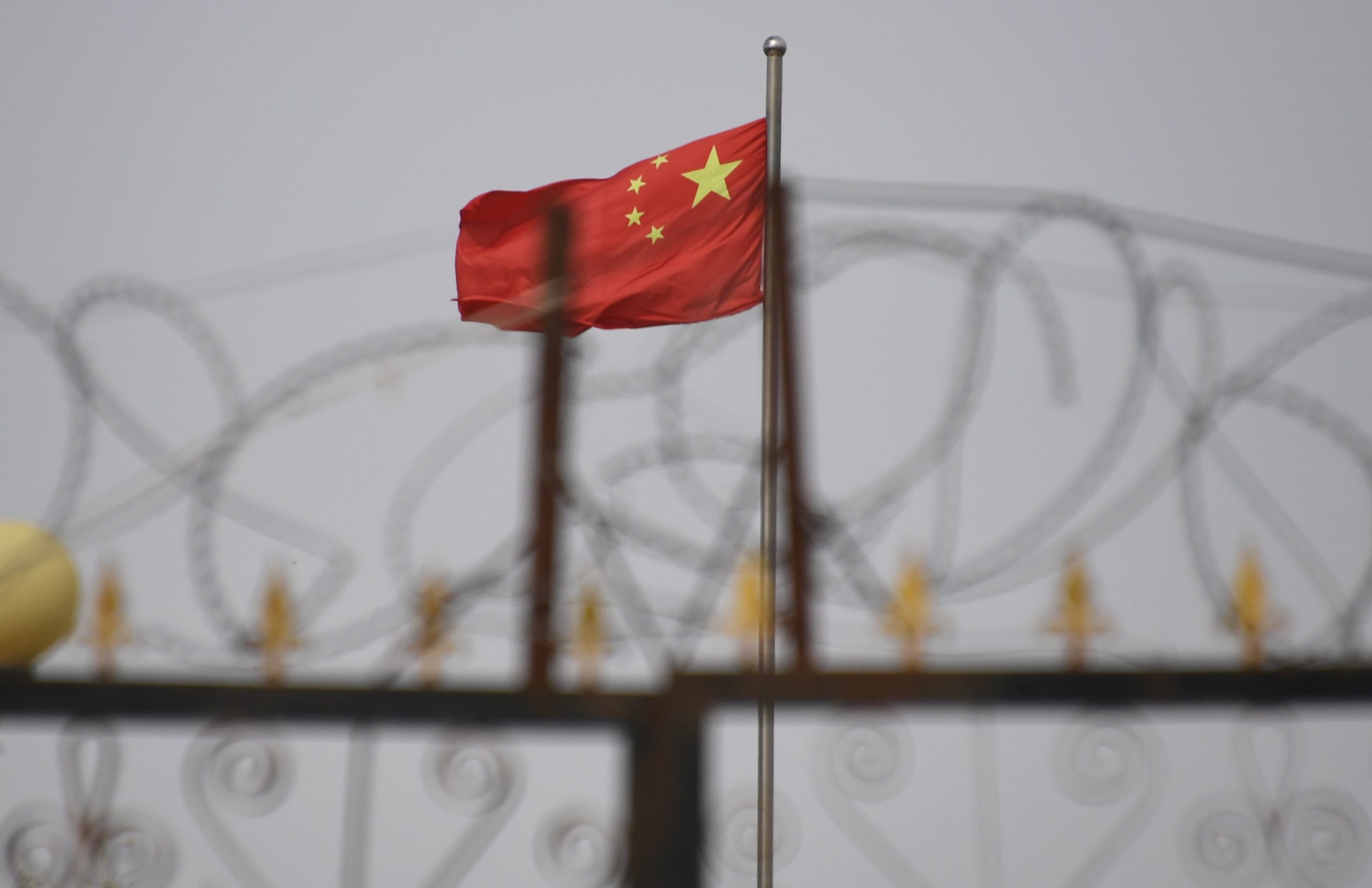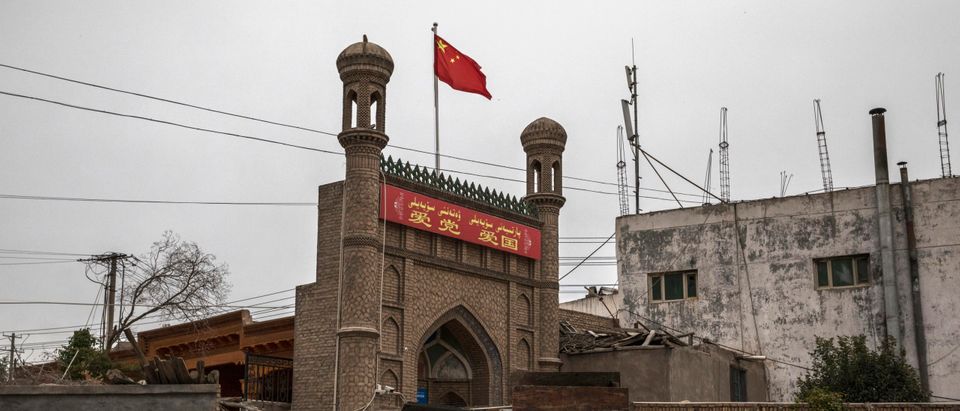Uighur Muslims and other minorities detained in China’s re-education camps are forced to eat pork on holy days and subjected to various forms of “humiliation and violence,” according to a recent account from re-education camp survivor Sayragul Sautbay.
Sautbay is a medical doctor of Kazakh origin currently living in Sweden after being released from a re-education camp in China’s Xinjiang region more than two years ago. She detailed her experiences and those of other Muslim minority groups in an interview with Al Jazeera this week and an upcoming book.
“Every Friday, we were forced to eat pork meat,” Sautbay told Al Jazeera. “They have intentionally chosen a day that is holy for the Muslims. And if you reject it, you would get a harsh punishment.”
WATCH:
She added that Xinjiang authorities implemented the policy to make Muslim detainees feel shame and guilt as the consumption of pork is strictly prohibited in Islam. “I was feeling like I was a different person,” she told Al Jazeera. “All around me got dark. It was really difficult to accept.”
Sautbay’s upcoming book “The Chief Witness” also details her experience in a re-education camp and notes how she uncovered Beijing’s long-term plan for the Xinjiang region, according to the book’s publisher Scribe Publications. The book describes the punishment and torture detainees were subject to including “being beaten, raped, and used as subjects for medical experiments.”
Testimonies and prior reports reveal how China has targeted Uighurs and other Muslims ethnic minority groups in the country’s northwestern region. One survivor told The Wall Street Journal in a 2018 interview that he and other detainees were also forced to eat pork and not allowed to pray. (RELATED: UN Official: China Is ‘Creating Pockets Of Fear’ In Muslim Minority)
Xinjiang’s top administrator Shohrat Zakir reportedly announced in Nov. 2019 that the region would be transformed into a “pig-raising hub,” according to Al Jazeera. A new farm was built in the city of Kashgar earlier this year with the goal of producing 40,000 pigs annually, the Chinese-language website Sina reported.
The farm was authorized April 23 — the first day of the Islamic holy month Ramadan — and authorities noted that pig farming was not meant for export but “to ensure the supply of pork” in Kashgar despite Uighur Muslims making up the vast majority of the city’s population.

The Chinese flag behind razor wire at a housing compound in Yangisar China’s western Xinjiang region (Greg Baker/AFP via Getty Images)
The Chinese government has implemented strict measures in Xinjiang for several years. Agence France-Presse first reported in 2017 that authorities required shops to sell alcohol and cigarettes, banned all public prayer, criminalized the display of beards for anyone younger than 50 years old and installed security cameras in mosques.
Up to 2 million Uighurs and other Muslim minorities are believed to have been forced in re-education camps, according to a 2018 United Nations estimate first reported by Reuters. It is unclear how many people are currently detained. (RELATED: US Joins Nearly 40 Countries To Criticize China For ’21st Century Holocaust’)
The State Department imposed sanctions and visa restrictions on Chinese Communist Party officials earlier this year for human rights violations in Xinjiang. The Commerce Department previously added 28 Chinese firms to a trade blacklist in Oct. 2019 for “repression, mass arbitrary detention and high-technology surveillance” in Xinjiang.


